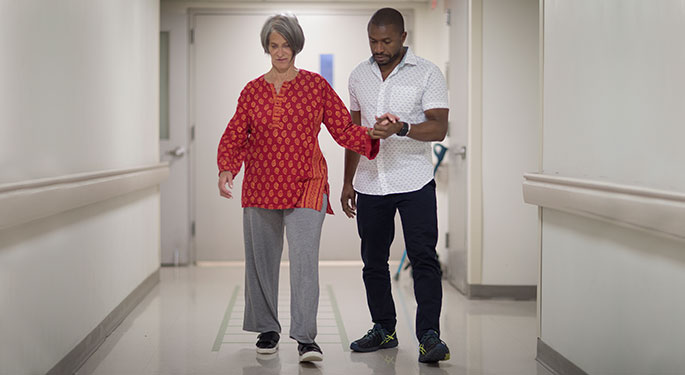Building Psychological Strength to Enhance Performance in Physical Recovery
Wiki Article
Cognitive fortitude is an crucial quality that can significantly improve results in physical rehabilitation. Sportspeople often grapple with conditions that require time away from their activity, which can be both somatically and mentally challenging. Mental resilience refers to the ability to remain grounded and resilient in the face of adversity. It helps athletes adapt to the pressure of rehabilitation, stay committed on their goals, and maintain motivation throughout the healing process. By developing mental resilience, athletes can improve their recovery experience and return to their discipline better prepared than before.

A single key aspect of building emotional toughness is setting realistic objectives. When athletes are injured, it is crucial for them to have clear, attainable benchmarks during their recovery. These plans should be detailed, measurable, attainable, relevant, and deadline-driven (actionable) principles. For example, instead of saying “I plan to recover soonâ€, an athlete might set a goal like “I will follow my therapy routine three times weekly for four weeksâ€. This helps recovering individuals monitor their progress and keep their attention on what they can influence, reducing feelings of discouragement or despair.
Another important factor in enhancing mental resilience is maintaining a positive mindset. Athletes should practice positive self-talk and visualization techniques to foster a constructive mental environment. Positive self-talk involves replacing negative thoughts with empowering statements. For instance, instead of thinking “I will never recoverâ€, an athlete could tell themselves “I am making progress every dayâ€. Visualization check that can also be powerful; athletes can imagine themselves performing well in their discipline as they progress. These practices help build mental fortitude and reinforce the belief that healing is possible.
Support systems play a critical role in fostering emotional toughness during healing. Sportspeople should stay connected with supportive friends, family members, mentors, and rehab specialists who understand the demands of recovery. Open communication with these care team members allows recovering individuals to express their emotions, worries, and setbacks. Additionally, sharing experiences with other recovering peers can provide a sense of community and connection that makes the path easier. Knowing others have faced comparable challenges can inspire hope and motivate patients to keep going.
Finally, mindfulness techniques can measurably strengthen an patient’s emotional stability during recovery. Mindfulness involves being attentive of one’s internal dialogue and emotions without judgment. Practices such as mental stillness, breathwork, or yoga can help youth personal training programs individuals manage anxiety and emotional pressure related to their condition. By incorporating mindfulness into their regular habits, recovering individuals learn to stay present and focused on their progress, rather than dwelling on what they have missed during their time off from competition. This method promotes emotional stability and encourages a constructive attitude towards recovery.